
Regina: The Heart of the Prairies
Welcome to Regina, the capital city of Saskatchewan, Canada. This vibrant city blends rich history with modern attractions, making it a perfect destination for tourists. From its stunning parks to its cultural landmarks, Regina offers something for everyone. Begin your journey at the Royal Saskatchewan Museum, where you can explore the natural history of the province. Discover the indigenous heritage and marvel at the exhibits showcasing the diverse ecosystems of Saskatchewan. For art enthusiasts, the MacKenzie Art Gallery is a must-visit, featuring contemporary and historical art from Canada and around the world. Don't miss Wascana Centre, one of the largest urban parks in North America. Here, you can enjoy a peaceful stroll around Wascana Lake, visit the Saskatchewan Legislative Building, or have a picnic in the beautifully landscaped gardens. The park is also home to the Conexus Arts Centre, where you can catch a live performance during your stay. Regina's culinary scene is thriving, with a variety of local restaurants offering everything from fine dining to casual eats. Be sure to try some traditional prairie cuisine, and don't forget to visit the Regina Farmers' Market for fresh local produce and handmade crafts. Whether you're a history buff, nature lover, or foodie, Regina has plenty to offer. With its friendly locals and welcoming atmosphere, you'll feel right at home in this charming city.
Local tips in Regina
- Plan your visit to Wascana Centre early in the day to enjoy the serene beauty of the park before it gets crowded.
- The Regina Farmers' Market is open seasonally, so check the schedule before you go to experience the best local produce and crafts.
- For an authentic taste of prairie cuisine, try a restaurant that features bison or Saskatchewan-grown ingredients.
- Visit the Saskatchewan Legislative Building during weekdays for guided tours and learn about the province's political history.
- Check the Conexus Arts Centre's schedule in advance to catch a live performance and make the most of your cultural experience in Regina.
Neighbourhoods in Regina
Regina: The Heart of the Prairies
Welcome to Regina, the capital city of Saskatchewan, Canada. This vibrant city blends rich history with modern attractions, making it a perfect destination for tourists. From its stunning parks to its cultural landmarks, Regina offers something for everyone. Begin your journey at the Royal Saskatchewan Museum, where you can explore the natural history of the province. Discover the indigenous heritage and marvel at the exhibits showcasing the diverse ecosystems of Saskatchewan. For art enthusiasts, the MacKenzie Art Gallery is a must-visit, featuring contemporary and historical art from Canada and around the world. Don't miss Wascana Centre, one of the largest urban parks in North America. Here, you can enjoy a peaceful stroll around Wascana Lake, visit the Saskatchewan Legislative Building, or have a picnic in the beautifully landscaped gardens. The park is also home to the Conexus Arts Centre, where you can catch a live performance during your stay. Regina's culinary scene is thriving, with a variety of local restaurants offering everything from fine dining to casual eats. Be sure to try some traditional prairie cuisine, and don't forget to visit the Regina Farmers' Market for fresh local produce and handmade crafts. Whether you're a history buff, nature lover, or foodie, Regina has plenty to offer. With its friendly locals and welcoming atmosphere, you'll feel right at home in this charming city.
When is the best time to go to Regina?
Iconic landmarks you can’t miss
Mosaic Stadium
Discover the vibrant atmosphere of Mosaic Stadium in Regina, Saskatchewan, a premier venue for sports and entertainment that embodies local pride.
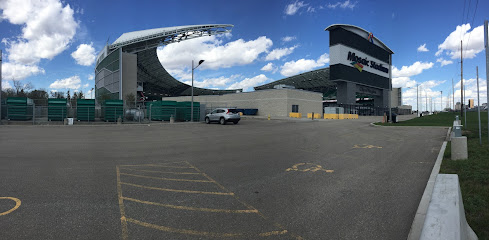
Wascana Place
Explore Wascana Place, Regina's serene park featuring lush landscapes, recreational activities, and cultural landmarks for an unforgettable experience.
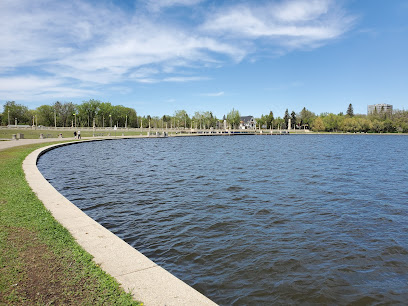
Royal Saskatchewan Museum
Discover Saskatchewan's natural history, Indigenous cultures, and prehistoric giants at the Royal Saskatchewan Museum in Regina.
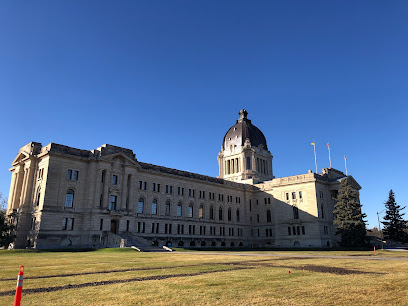
Conexus Arts Centre
Regina's premier performing arts venue, hosting diverse events from concerts and theatre to conventions, in the heart of Wascana Centre.
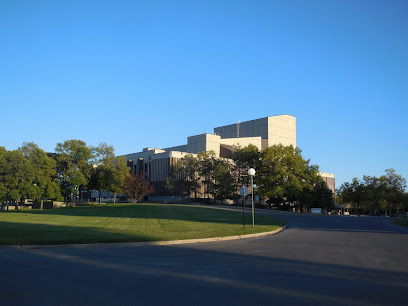
Victoria Park
Explore Victoria Park, Regina's beautiful urban park featuring lush landscapes, vibrant monuments, and a lively atmosphere year-round.
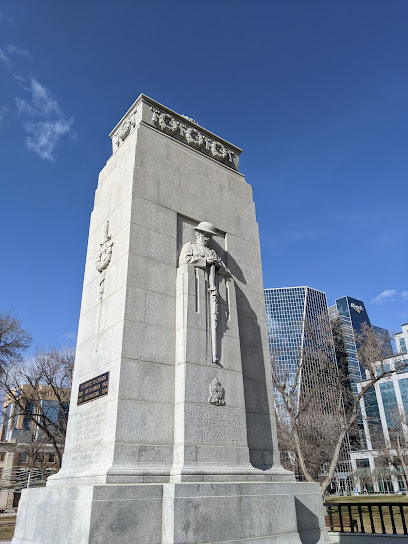
The Hotel Saskatchewan, Autograph Collection
Discover the elegance of The Hotel Saskatchewan, an Autograph Collection hotel blending historic charm and modern luxury in Regina.

Landmark Cinemas 8 Regina
Discover the ultimate movie experience at Landmark Cinemas 8 Regina, where cinematic magic comes to life in a comfortable and inviting atmosphere.
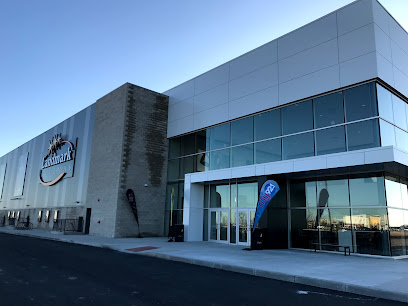
REAL District - operated by Regina Exhibition Association Limited
Experience the heart of Regina's entertainment, sports, and agriculture at the REAL District, Canada's largest interconnected event complex.
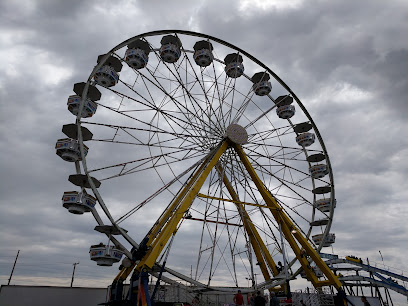
Candy Cane Park
A Regina landmark in Wascana Centre, Candy Cane Park offers a playful escape with unique climbing structures and Queenie the Goose slide.
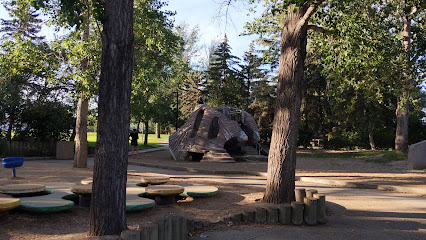
Kiwanis Waterfall Park
Discover tranquility at Kiwanis Waterfall Park, Regina's lush oasis featuring serene waterfalls and picturesque landscapes perfect for relaxation.
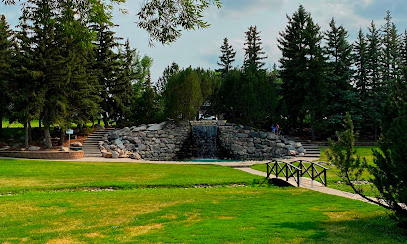
RCMP Heritage Centre
Explore the legacy of the Royal Canadian Mounted Police at the RCMP Heritage Centre, a captivating museum in Regina, Saskatchewan, rich with history and engaging exhibits.
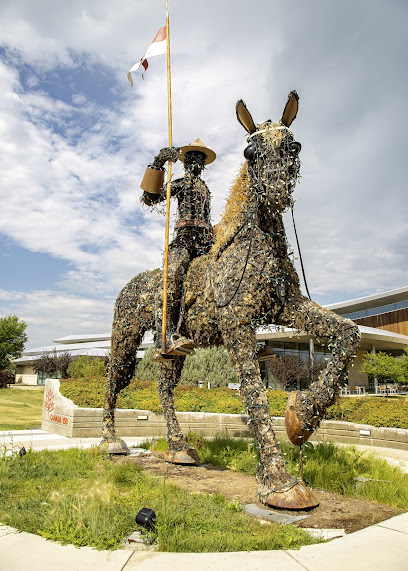
The Brandt Centre
Discover the excitement of The Brandt Centre, Regina's leading arena for sports and entertainment, blending culture and community in every event.
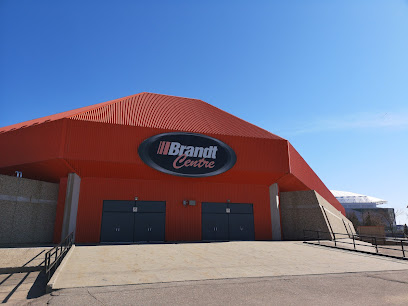
The Co-operators Centre
Experience the excitement of sports and entertainment at The Co-operators Centre in Regina, Saskatchewan's premier arena for community events and athletic competitions.
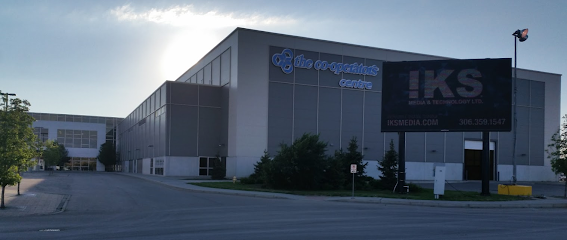
MacKenzie Art Gallery
Explore the MacKenzie Art Gallery in Regina, Saskatchewan - a vibrant art destination showcasing diverse exhibitions and community-driven programs.
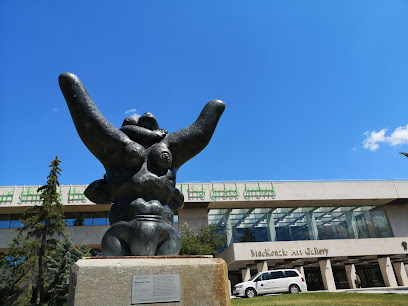
Government House
Explore Government House in Regina, a historic site blending stunning architecture and rich Saskatchewan heritage, perfect for all tourists.
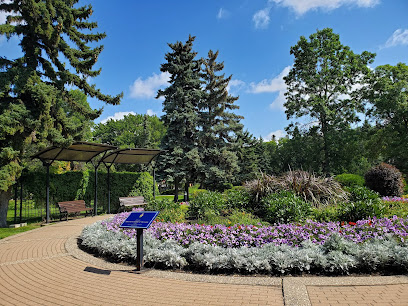
Unmissable attractions to see
Mosaic Stadium
Discover the excitement of Mosaic Stadium in Regina, a premier venue for sports and entertainment, and experience Saskatchewan's vibrant culture.
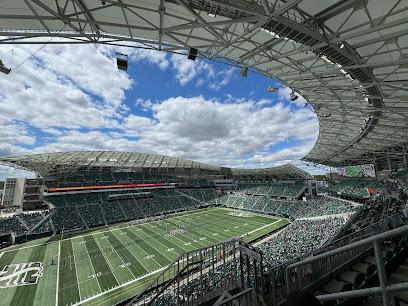
Royal Saskatchewan Museum
Explore Saskatchewan's rich natural history and cultural heritage at the Royal Saskatchewan Museum, where fascinating exhibits await every visitor.
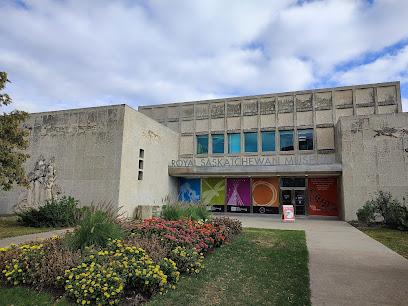
Wascana Place
Discover Wascana Place, a beautiful park in Regina featuring serene landscapes, walking paths, and cultural landmarks amidst nature's embrace.
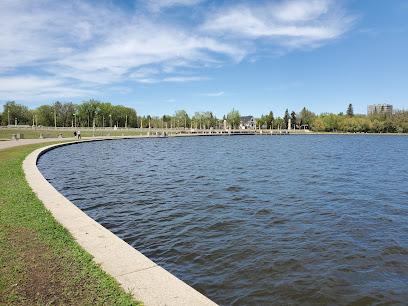
Victoria Park
Explore the lush landscapes and vibrant culture of Victoria Park, Regina's urban sanctuary for relaxation and community events.
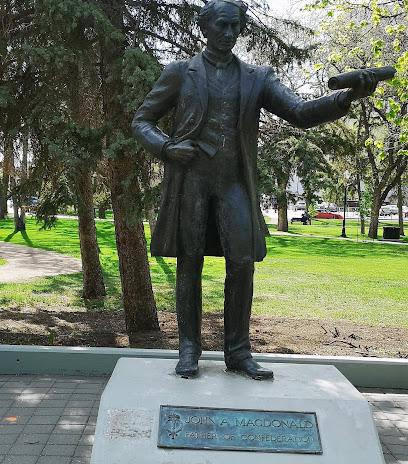
RCMP Heritage Centre
Delve into the legacy of the Royal Canadian Mounted Police at the RCMP Heritage Centre, where history and culture converge in Regina, Saskatchewan.
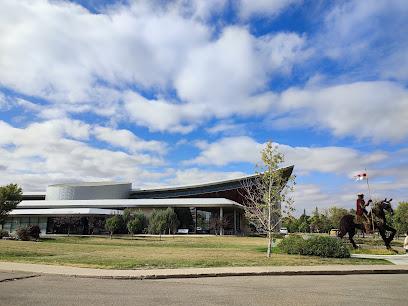
Candy Cane Park
Experience the whimsical charm of Candy Cane Park in Regina, where adventure meets relaxation amidst vibrant landscapes and playful designs.
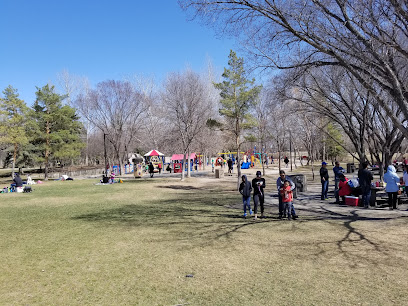
MacKenzie Art Gallery
Discover the MacKenzie Art Gallery in Regina, a vibrant space celebrating Canadian and international art through dynamic exhibitions and community events.
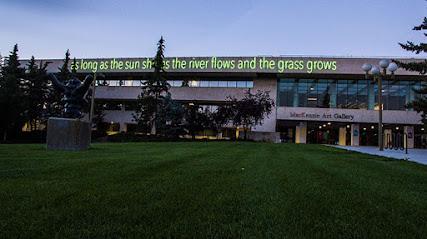
Government House
Experience the rich history and stunning architecture of Government House, Regina's premier tourist attraction and a window into Saskatchewan's past.
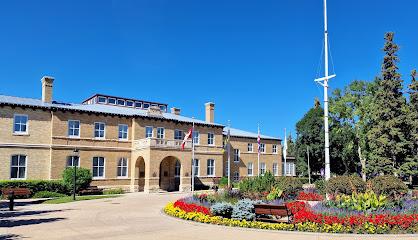
District 3 Escape Rooms
Experience adventure and excitement at District 3 Escape Rooms in Regina, where teamwork meets thrilling puzzle challenges for an unforgettable outing.
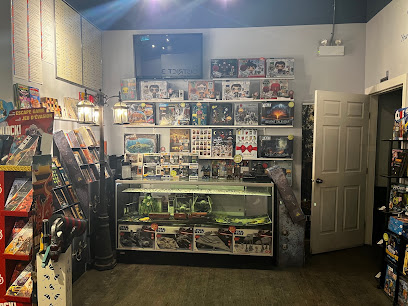
Globe Theatre
Discover the vibrant world of performing arts at Globe Theatre in Regina, Saskatchewan - an unforgettable experience awaits every visitor.
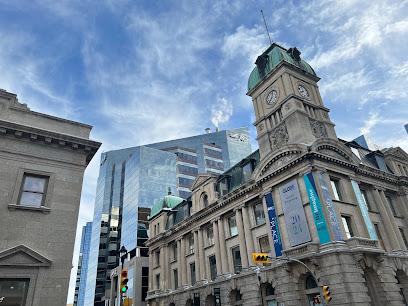
Regina Floral Conservatory
Discover the Regina Floral Conservatory, a serene tropical escape filled with stunning floral displays and diverse plant collections in Saskatchewan.
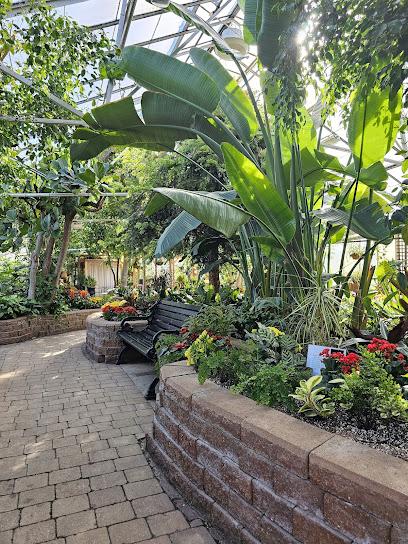
A.E. Wilson Park
Explore the serene A.E. Wilson Park in Regina, Saskatchewan, a lush green oasis perfect for picnics, walking trails, and wildlife spotting.
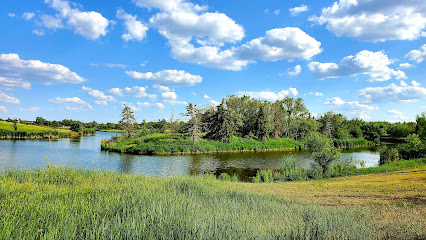
Saskatchewan Science Centre
Discover the fascinating world of science at the Saskatchewan Science Centre, a family-friendly attraction in Regina filled with interactive exhibits and IMAX experiences.
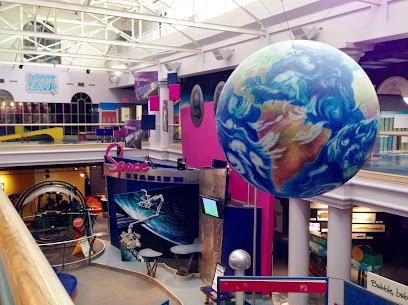
Wascana Hill
Explore Wascana Hill, Regina's serene park offering stunning views of the city and Wascana Lake, perfect for outdoor activities and relaxation.
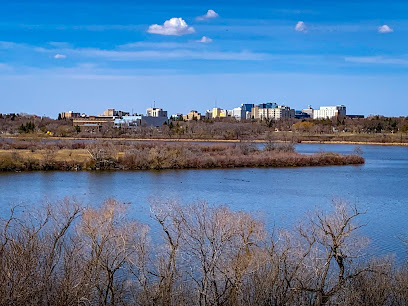
Les Sherman Park
Explore the enchanting Les Sherman Park in Regina, a tranquil escape with vibrant gardens, scenic trails, and family-friendly recreation.
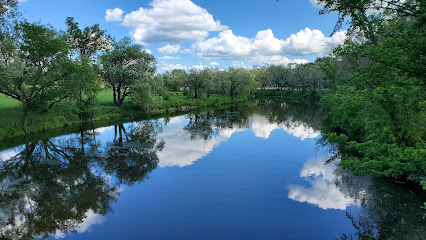
Essential places to dine
The Canadian Brewhouse (Regina Grasslands)
Experience the thrill of live sports and indulge in delicious pub fare at The Canadian Brewhouse in Regina Grasslands.
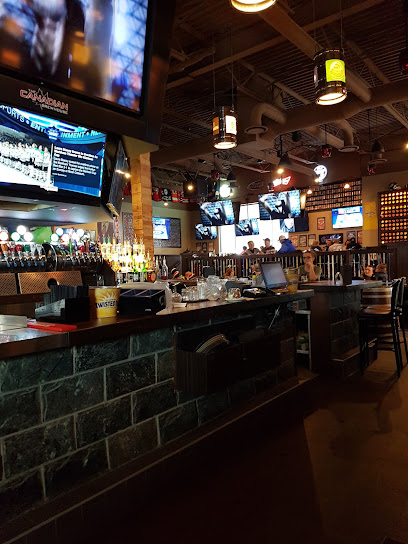
Victoria's Tavern Downtown
Discover Regina's vibrant dining scene at Victoria's Tavern Downtown – where great food meets lively entertainment.
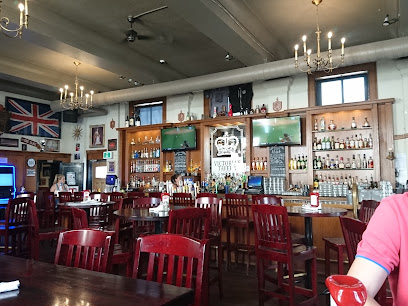
Caraway Grill - Regina Downtown
Experience authentic Indian cuisine at Caraway Grill in Regina Downtown—where tradition meets fine dining in every flavorful dish.
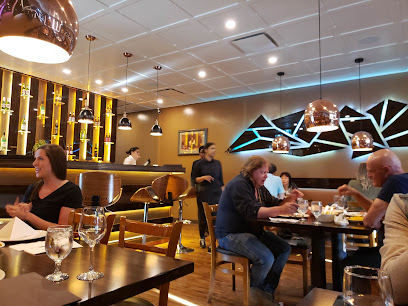
East Side Mario's
Discover delightful Italian-American cuisine at East Side Mario's in Regina - perfect for family meals or casual dining with friends.
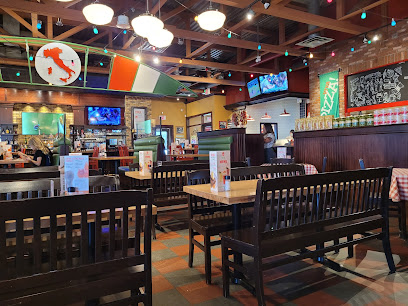
Olive Garden Italian Restaurant
Experience authentic Italian cuisine at Olive Garden in Regina - perfect for families with gluten-free options and a delightful wine selection.
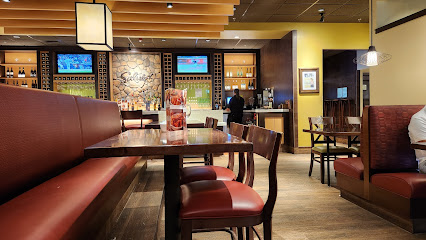
The Keg Steakhouse + Bar - Regina Centre Crossing
Discover fine dining at The Keg Steakhouse + Bar in Regina; enjoy exquisite steaks and vibrant atmosphere perfect for any occasion.
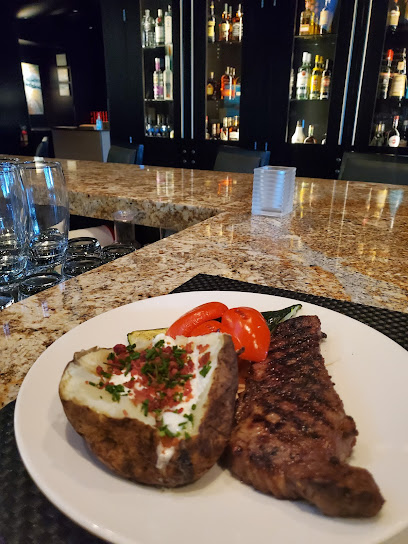
Agave Authentic Mexican Grill
Experience the essence of authentic Mexican cuisine at Agave Authentic Mexican Grill in Regina - where flavor meets fiesta!
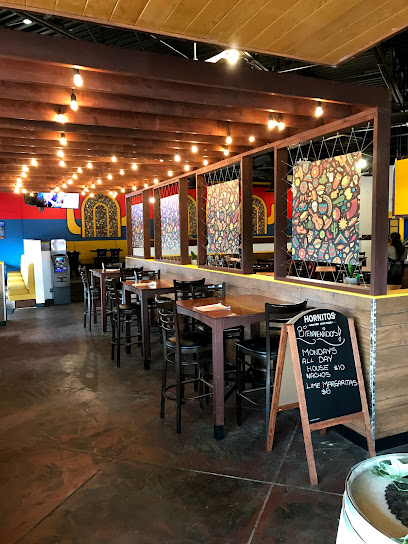
Ginger Garlic Nepalese Cuisine
Experience authentic Nepalese cuisine in Regina with flavorful dishes that reflect rich cultural traditions.
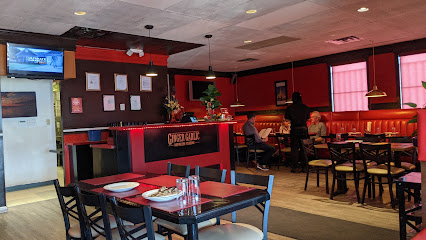
Mercury Cafe & Grill
Savor delicious hamburgers and gourmet breakfast at Mercury Cafe & Grill in Regina - where taste meets comfort in every bite!
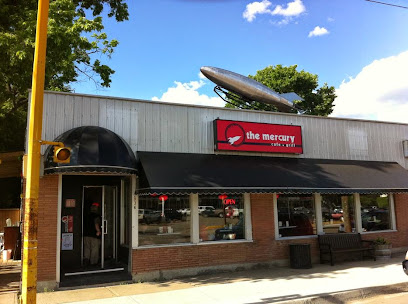
Earls Kitchen + Bar
Experience global flavors at Earls Kitchen + Bar in Regina - where vibrant dining meets exceptional service.
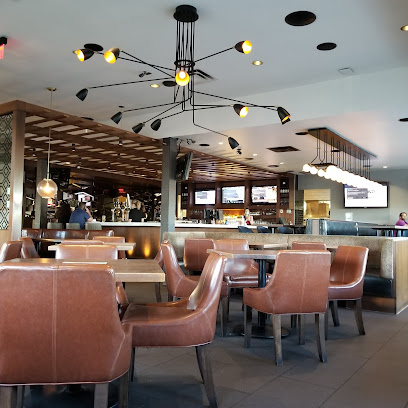
Coney Island Poutine
Experience the best of Canadian cuisine at Coney Island Poutine in Regina – where delicious poutine meets family-friendly dining.
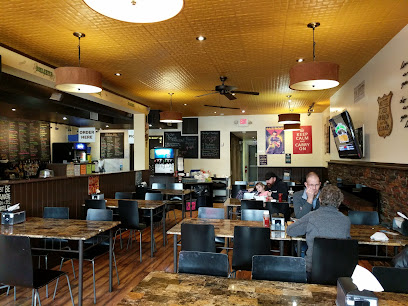
Chop Steakhouse & Bar
Discover the art of fine dining at Chop Steakhouse & Bar in Regina - where quality steaks meet exceptional service in an elegant setting.
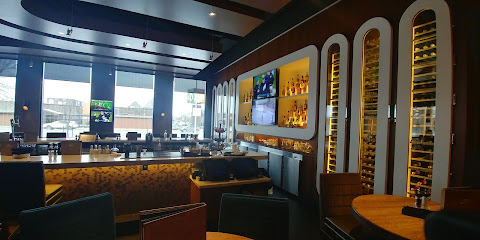
The Diplomat Steakhouse
Experience unparalleled dining at The Diplomat Steakhouse in Regina, where premium steaks and exceptional service create unforgettable memories.
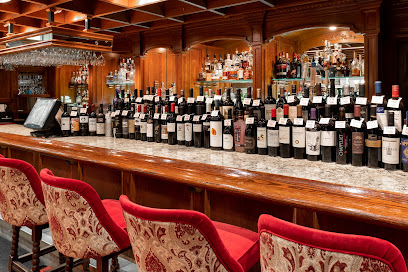
Cathedral Social Hall
Experience the best of local cuisine and vibrant nightlife at Cathedral Social Hall in Regina's picturesque Cathedral neighborhood.
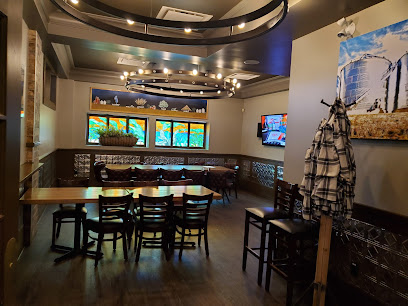
Fireside Bistro
Experience culinary delights at Fireside Bistro in Regina—where hearty dishes meet warm hospitality in a cozy atmosphere.
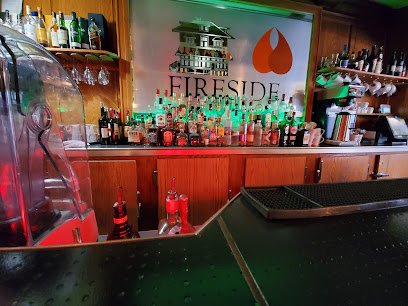
Markets, malls and hidden boutiques
Cornwall Centre
Explore the Cornwall Centre in Regina: Your ultimate shopping destination filled with vibrant stores, dining options, and lively events.
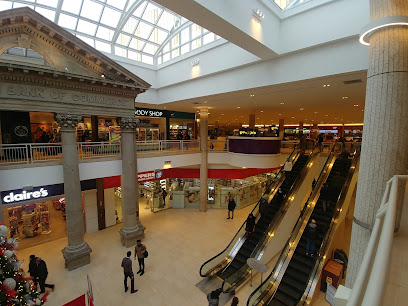
Southland Mall
Explore Southland Mall in Regina: A vibrant shopping haven with diverse stores, delicious dining options, and engaging entertainment for all.
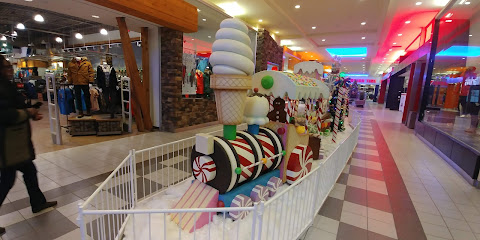
Northgate Mall
Explore Northgate Mall in Regina, a vibrant shopping center filled with diverse retail options, dining experiences, and entertainment for all ages.
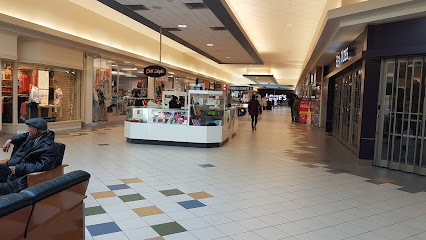
Victoria Square Shopping Centre
Experience the best of shopping and dining at Victoria Square Shopping Centre in Regina, Saskatchewan, where variety and vibrancy meet.
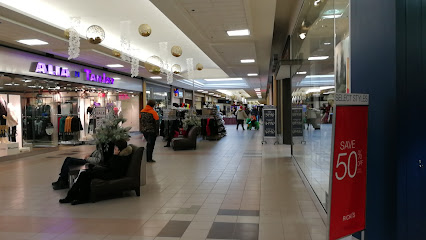
Centennial Market
Explore Centennial Market in Regina, where local flavors, artisan crafts, and a vibrant atmosphere come together for an unforgettable shopping experience.
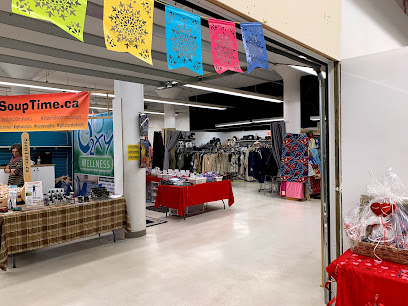
Rochdale Crossing
Discover the lively shopping experience at Rochdale Crossing, Regina's premier shopping destination with diverse retail and dining options.
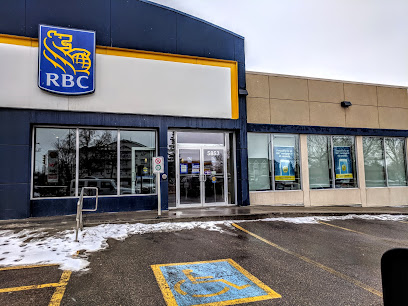
Dessart Sweets Ice Cream & Candy Store
Indulge in a world of sweetness at Dessart Sweets Ice Cream & Candy Store in Regina, where delicious ice cream and nostalgic candies await.
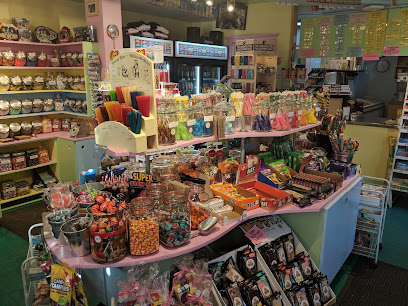
Normanview Crossing
Explore Normanview Crossing, Regina’s vibrant shopping mall, featuring diverse shops, dining options, and entertainment for an unforgettable experience.
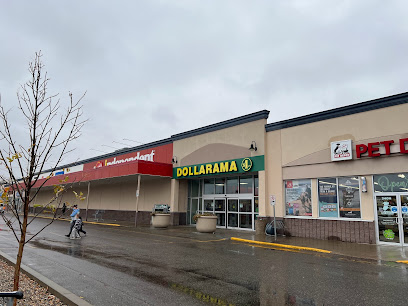
Vintage Vinyl & Hemp Emporium
Explore the eclectic world of music and unique finds at Vintage Vinyl & Hemp Emporium, Regina's ultimate destination for vinyl lovers and vintage seekers.
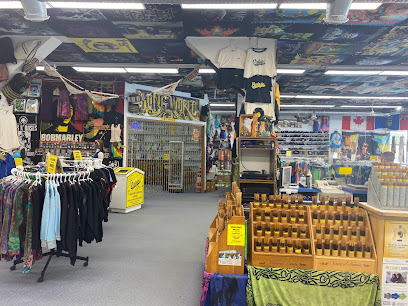
Aware House Books
Explore Aware House Books in Regina for an unforgettable blend of unique gifts, spiritual supplies, and an extensive selection of books.
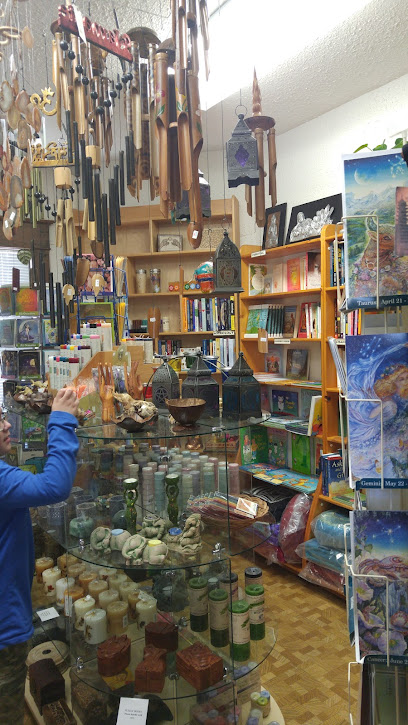
Wascana Flower Shoppe
Discover the vibrant beauty of Saskatchewan at Wascana Flower Shoppe, a floral haven in Regina offering fresh blooms and unique gifts.
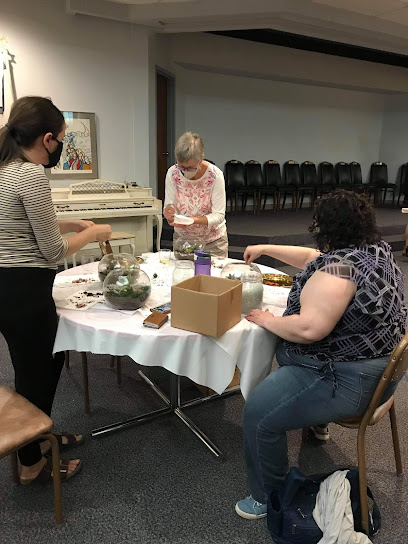
Antique Mall
Uncover unique antiques and collectibles at Regina's Antique Mall, a vintage treasure trove for every enthusiast.
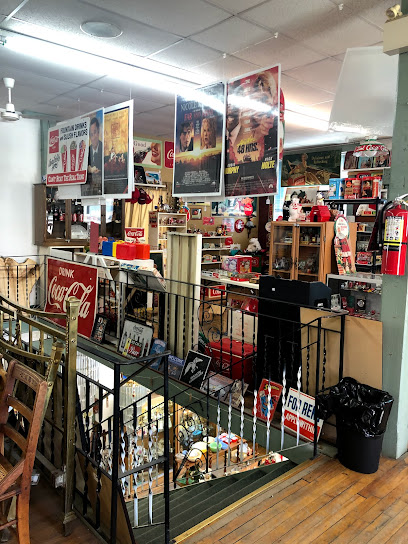
Paper Umbrella
Explore Paper Umbrella, a charming gift shop and stationery haven in Regina’s Cathedral district, offering unique gifts and local art!
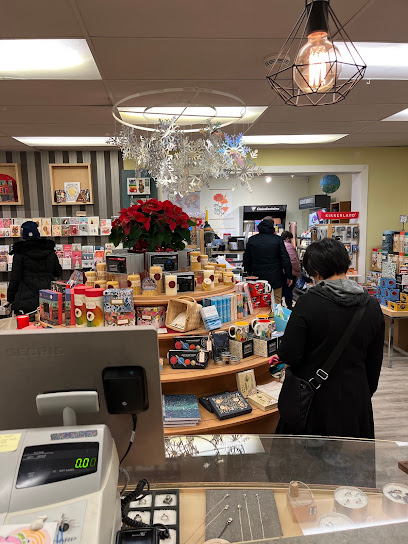
Secondhand Wonderland
Explore Secondhand Wonderland in Regina for unique collectibles, vintage records, and eclectic treasures in a charming secondhand shopping experience.
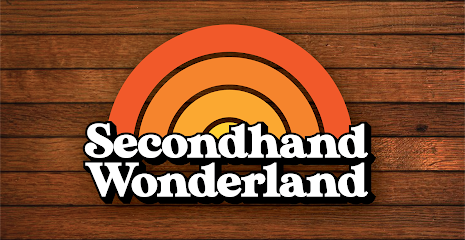
Hsquare Boutique
Discover Hsquare Boutique in Regina for unique women's fashion that embodies style and sophistication, perfect for every occasion.
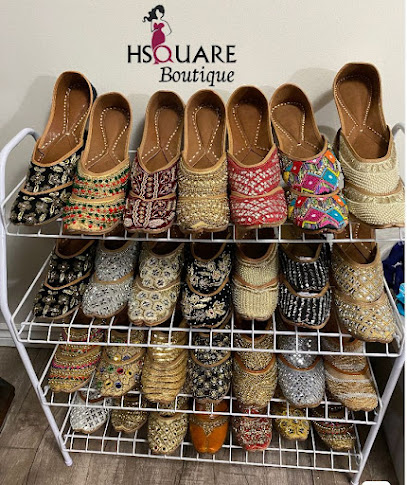
Essential bars & hidden hideouts
Bushwakker Brewpub
Discover the charm of Regina's craft beer scene at Bushwakker Brewpub, where local flavors and brews create unforgettable experiences.
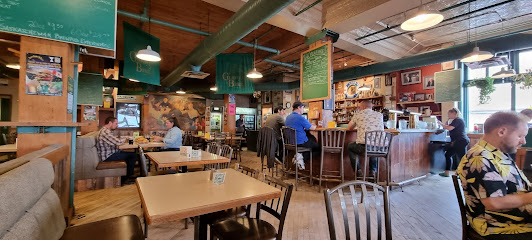
Victoria's Tavern Downtown
Discover the lively ambiance and delicious cuisine at Victoria's Tavern Downtown, Regina's top bar and restaurant for tourists seeking a memorable experience.
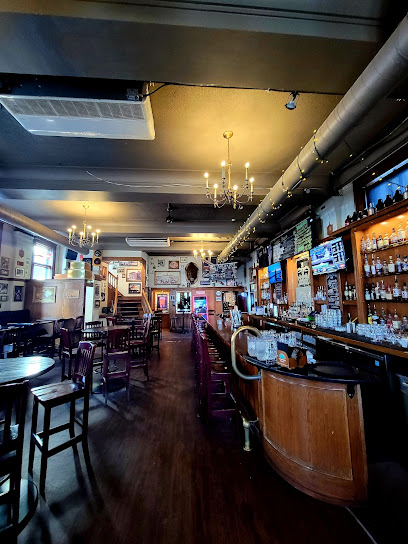
Leopold's Tavern Regina - North
Discover the lively ambiance of Leopold's Tavern Regina - North, where great food, craft beers, and social vibes come together.
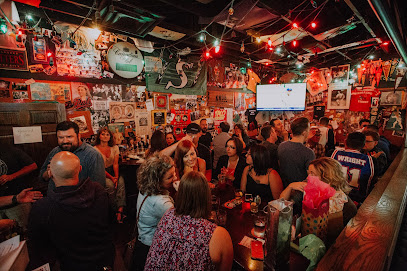
Leopold's Tavern Regina - East
Discover the lively atmosphere and delicious fare at Leopold's Tavern Regina - East, the perfect spot for a memorable night out in Saskatchewan.
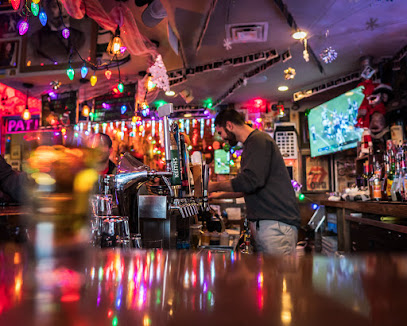
O'Hanlon's Irish Pub
Discover the charm of Ireland in Regina at O'Hanlon's Irish Pub - a perfect blend of hearty cuisine, live music, and a warm atmosphere.
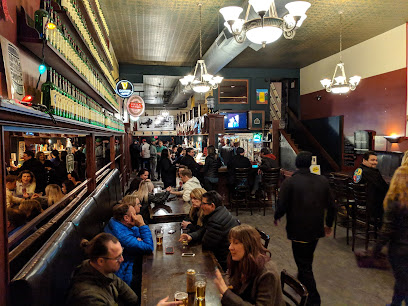
Creekside Pub & Brewery
Discover the vibrant flavors of Saskatchewan at Creekside Pub & Brewery, where handcrafted beers and delicious meals create memorable experiences.
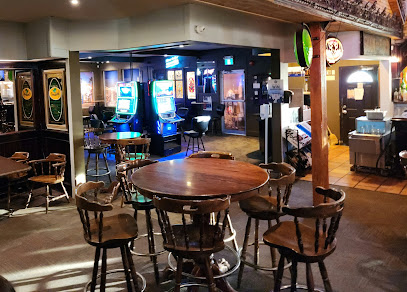
Cathedral Social Hall
Discover Cathedral Social Hall in Regina: a vibrant bar and restaurant offering local flavors, craft beers, and a lively atmosphere perfect for tourists.
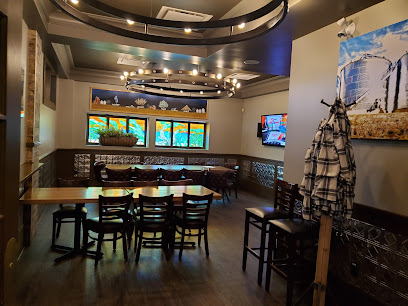
Bar Willow Eatery
Discover Bar Willow Eatery, where local ingredients meet innovative cuisine in a gastropub setting by the beautiful Wascana Lake.
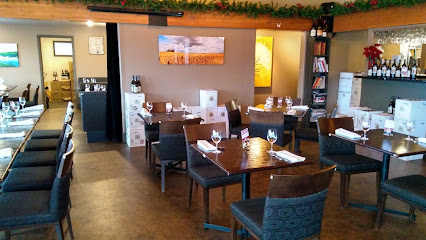
The Fat Badger
Experience the vibrant dining scene at The Fat Badger, where delicious pub food meets a lively atmosphere in the heart of Regina.
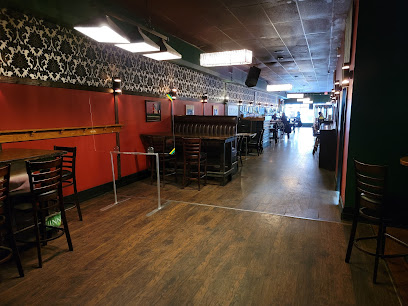
Knotted Thistle Pub
Discover the charm of Knotted Thistle Pub, Regina's premier Irish pub offering delectable cuisine, craft beers, and a vibrant atmosphere for an unforgettable experience.
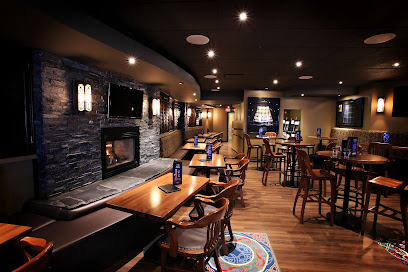
The Lancaster
Experience the best of Regina's dining scene at The Lancaster, where local flavors and a welcoming atmosphere await.
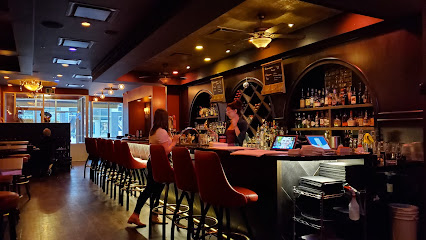
The Cure Kitchen + Bar
Experience the culinary delights of The Cure Kitchen + Bar in Regina, where local flavors meet innovative cocktails in a vibrant atmosphere.
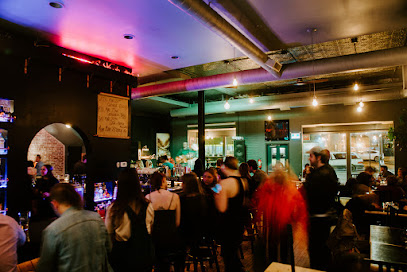
Leopold's Tavern Regina - South
Discover the lively atmosphere and delicious offerings at Leopold's Tavern Regina - South, where friends meet in comfort and style.
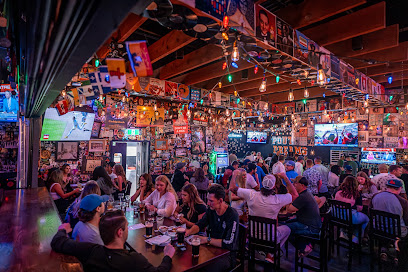
The Roof Top Bar And Grill
Discover Regina's culinary gem at The Roof Top Bar And Grill, where stunning views meet delicious grilled dishes and vibrant nightlife.
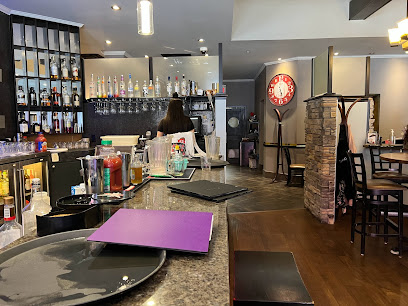
Hop & Vine Neighbourhood Pub
Discover the heart of Regina's nightlife at Hop & Vine Neighbourhood Pub, where great food, drinks, and community spirit come together.
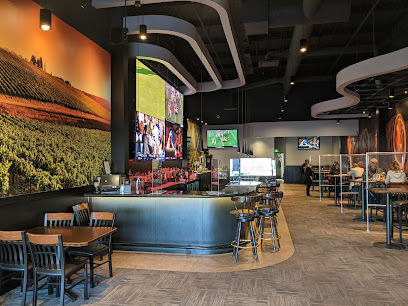
Local Phrases
-
- HelloBonjour
[Bohn-zhoor] - GoodbyeAu revoir
[Oh reh-vwah] - YesOui
[Wee] - NoNon
[Non] - Please/You're welcomeS'il vous plaît/De rien
[Seel voo pleh/Deh ree-ehn] - Thank youMerci
[Mehr-see] - Excuse me/SorryExcusez-moi/Désolé
[Ex-kew-zay mwah/Day-zoh-lay] - How are you?Comment ça va?
[Koh-mohn sah vah?] - Fine. And you?Bien. Et vous?
[Byen. Ay voo?] - Do you speak English?Parlez-vous anglais?
[Par-lay voo ahng-glay?] - I don't understandJe ne comprends pas
[Zhuh nuh kohm-prahnd pah]
- HelloBonjour
-
- I'd like to see the menu, pleaseJe voudrais voir le menu, s'il vous plaît
[Zhuh voo-dray vwah-r leh meh-new, seel voo pleh] - I don't eat meatJe ne mange pas de viande
[Zhuh nuh mahnj pah duh vee-and] - Cheers!Santé!
[Sahn-tay] - I would like to pay, pleaseJe voudrais payer, s'il vous plaît
[Zhuh voo-dray pay-ay, seel voo pleh]
- I'd like to see the menu, pleaseJe voudrais voir le menu, s'il vous plaît
-
- Help!Au secours!
[Oh seh-coor] - Go away!Allez-vous en!
[Ah-lay voo zahn] - Call the Police!Appelez la police!
[Ah-peh-lay lah poh-lees] - Call a doctor!Appelez un médecin!
[Ah-peh-lay uhn meh-deh-sahn] - I'm lostJe suis perdu
[Zhuh swee pair-doo] - I'm illJe suis malade
[Zhuh swee mah-lahd]
- Help!Au secours!
-
- I'd like to buy...Je voudrais acheter...
[Zhuh voo-dray zah-shey...] - I'm just lookingJe regarde juste
[Zhuh ruh-gahrd zhuhst] - How much is it?Combien ça coûte?
[Kohm-byen sah koot?] - That's too expensiveC'est trop cher
[Say troh shair] - Can you lower the price?Pouvez-vous baisser le prix?
[Poo-veh voo beh-say leh pree?]
- I'd like to buy...Je voudrais acheter...
-
- What time is it?Quelle heure est-il?
[Kell err ay eel?] - It's one o'clockIl est une heure
[Eel ay oon err] - Half past (10)Dix heures et demie
[Deeze err ay duh-mee] - MorningMatin
[Mah-tan] - AfternoonAprès-midi
[Ah-pray mee-dee] - EveningSoir
[Swah] - YesterdayHier
[Ee-air] - TodayAujourd'hui
[Oh-zhoor dewee] - TomorrowDemain
[Duh-mahn] - 1Un
[Ehn] - 2Deux
[Duh] - 3Trois
[Twa] - 4Quatre
[Kah-truh] - 5Cinq
[Sank] - 6Six
[Sees] - 7Sept
[Set] - 8Huit
[Weet] - 9Neuf
[Nuhf] - 10Dix
[Deeze]
- What time is it?Quelle heure est-il?
-
- Where's a/the...?Où est un/le...?
[Oo ay uh/luh...?] - What's the address?Quelle est l'adresse?
[Kell ay lahd-rehs?] - Can you show me (on the map)?Pouvez-vous me montrer (sur la carte)?
[Poo-veh voo muh mohn-tray (soor lah kart)?] - When's the next (bus)?Quand est le prochain (bus)?
[Kahnd ay luh proh-shahn (boos)?] - A ticket (to ....)Un billet (pour ....)
[Ehn bee-yay (poor ....)]
- Where's a/the...?Où est un/le...?
History of Regina
-
Regina was officially established in 1882 when it was chosen as the capital of the North-West Territories, a vast region that would eventually become much of present-day Alberta, Saskatchewan, and parts of Manitoba. The decision to place the capital in Regina was influenced by its central location and the ambitions of the Canadian Pacific Railway, which played a crucial role in the city's early development.
-
In 1885, Regina played a significant role in the North-West Rebellion, a resistance movement led by the Métis people and their allies against the Canadian government. The city was the site of the trial of Louis Riel, the leader of the rebellion. Riel was ultimately convicted of high treason and executed, a decision that remains controversial to this day. His trial and execution had lasting impacts on Métis rights and Canadian politics.
-
The arrival of the Canadian Pacific Railway in the early 1880s was pivotal for Regina's development. The railway not only facilitated the transport of goods and people but also attracted settlers and businesses to the area. This period saw Regina transform from a modest settlement into a bustling hub of commerce and agriculture.
-
In 1905, Saskatchewan became a Canadian province, and Regina was designated as its capital. This status brought significant political and administrative responsibilities to the city. The construction of the Saskatchewan Legislative Building, completed in 1912, symbolized Regina's new role as the political heart of the province.
-
On June 30, 1912, Regina was struck by one of the deadliest tornadoes in Canadian history, known as the Regina Cyclone. The tornado caused widespread destruction, killing 28 people and leaving hundreds homeless. The disaster prompted a massive rebuilding effort, which helped shape the modern cityscape of Regina.
-
The Great Depression of the 1930s had a profound impact on Regina, culminating in the Regina Riot of 1935. This event occurred when a group of unemployed men, part of the 'On-to-Ottawa Trek,' clashed with police during a protest. The riot resulted in two deaths and numerous injuries, highlighting the desperate economic conditions of the time.
-
Regina is home to the Royal Canadian Mounted Police (RCMP) Depot Division, the national training center for all RCMP recruits. Established in 1885, the Depot has been integral to the identity of Regina, shaping it as a city of law and order. The RCMP Heritage Centre, opened in 2007, offers visitors a glimpse into the storied history of Canada's national police force.
-
Regina has a vibrant cultural scene, with institutions like the MacKenzie Art Gallery, established in 1953, and the Regina Symphony Orchestra, which dates back to 1908. These institutions, along with numerous festivals and events, contribute to a rich cultural tapestry that reflects the city's diverse population and creative spirit.
Regina Essentials
-
Regina, the capital city of the province of Saskatchewan, is accessible by air, road, and rail. Regina International Airport (YQR) is the primary gateway for air travelers, with direct flights from major Canadian cities and some international destinations. VIA Rail offers train services, connecting Regina to other Canadian cities, although the service is limited. For road travelers, Highway 1 (the Trans-Canada Highway) and Highway 11 are the main routes into the city. Bus services such as Greyhound and Rider Express also connect Regina to other cities in Canada.
-
Regina has a variety of transportation options. Regina Transit operates an extensive bus network throughout the city, providing a reliable and affordable means of getting around. Taxis and ride-sharing services like Uber are also available. For those who prefer driving, several car rental agencies are located at the airport and around the city. Cycling is another option, with bike lanes and paths available in certain areas. Walking is feasible in the downtown area where many attractions are located close to each other.
-
The official currency in Regina, as in the rest of Canada, is the Canadian Dollar (CAD). Credit and debit cards are widely accepted in hotels, restaurants, and shops. ATMs are readily available throughout the city for cash withdrawals. It's advisable to carry some cash for smaller establishments or markets that might not accept cards. Mobile payment options like Apple Pay and Google Wallet are also commonly used.
-
Regina is generally a safe city, but like any urban area, it is important to stay vigilant. The downtown area is safe during the day but can be less secure at night. Certain neighborhoods, such as North Central, have higher crime rates and should be avoided after dark. Always keep an eye on your belongings, especially in crowded places. It is advisable to use well-lit and populated areas when walking at night.
-
In case of an emergency, dial 911 for police, fire, or medical assistance. Regina General Hospital is the main medical facility in the city and offers comprehensive healthcare services. Pharmacies are widely available for minor health issues. It's recommended to have travel insurance that covers medical emergencies. For non-emergency situations, the local police station can be contacted at 306-777-6500.
-
Fashion: Do dress in layers, especially in winter, as temperatures can be very cold. Avoid overly casual attire in finer dining establishments. Religion: Do respect all places of worship. Remove hats and keep noise levels down when visiting religious sites. Public Transport: Do have exact change or a transit card for bus fares. Don’t eat or drink on public transport. Greetings: Do greet people with a handshake. A friendly 'Hello' or 'Hi' is common. Eating & Drinking: Do try local dishes like poutine and Saskatoon berry pie. Don’t forget to tip your server, typically 15-20%.
-
To experience Regina like a local, visit the Regina Farmers' Market in the downtown area for fresh produce and handmade crafts. Take a stroll around Wascana Centre, a large urban park that offers beautiful views and recreational activities. Join a tour at the RCMP Heritage Centre to learn about the history of the Royal Canadian Mounted Police. For a unique experience, attend a Saskatchewan Roughriders football game at Mosaic Stadium. Engage with locals, who are generally friendly and happy to share their knowledge about the city.
Trending Landmark in Regina
-
Mosaic Stadium
-
Wascana Place
-
Royal Saskatchewan Museum
-
Conexus Arts Centre
-
Victoria Park
-
The Hotel Saskatchewan, Autograph Collection
-
Landmark Cinemas 8 Regina
-
REAL District - operated by Regina Exhibition Association Limited
-
Candy Cane Park
-
Kiwanis Waterfall Park
-
RCMP Heritage Centre
-
The Brandt Centre
-
The Co-operators Centre
-
MacKenzie Art Gallery
-
Government House
Nearby Cities to Regina
-
Things To Do in Saskatoon
-
Things To Do in Williston
-
Things To Do in Minot
-
Things To Do in Dickinson
-
Things To Do in Mandan
-
Things To Do in Devils Lake
-
Things To Do in Bismarck
-
Things To Do in Lewistown
-
Things To Do in Winnipeg
-
Things To Do in Cavalier
-
Things To Do in Jamestown
-
Things To Do in Great Falls
-
Things To Do in Billings
-
Things To Do in Grand Forks
-
Things To Do in Valley City

















